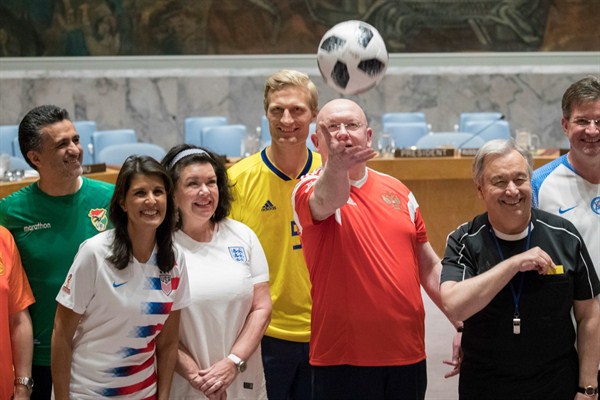Can big ideas, big data and even bigger academic books save the global system?
It is now conventional wisdom that international institutions are facing an almost existential crisis. The U.S. president regularly disparages multilateral mechanisms. China and Russia want to roll back many liberal norms. This is a bleak scenario for academics and pundits who believe in international cooperation. Under the circumstances, bright scholars of foreign policy would seem well advised to study realpolitik and interstate war, not how countries can get along better.
Yet counterintuitively, the current political crisis in global cooperation is coinciding with a small surge in serious and honest thinking about how the multilateral system works. As a policy wonk who has spent over a decade frequenting United Nations-focused events in New York in search of free lunches, I am more cynical than most about conceptual discussions of diplomacy. But there are some real glimmers of hope.

